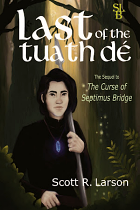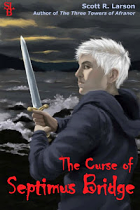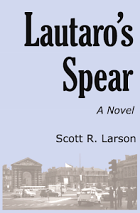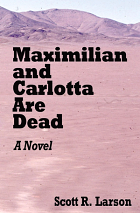Velvet (1932-2011)
There is something morbidly appropriate about The New York Times’s obituary for Elizabeth Taylor. (Go read it quick before it goes behind a paywall!) It is largely written by the paper’s longtime critic Mel Gussow. He does a fine job and includes a couple of beautiful lines. “First appearing on screen at age 9,” he writes, “she grew up there, never passing through an awkward age.” That’s perfectly accurate, at least if you’re speaking specifically of her youth and not her entire life.
The faintly morbid aspect of the obituary is that Gussow died nearly six years ago. And that is the most appropriate aspect of the obituary: that Taylor well outlived her memorialist. She was an uncanny survivor, as she herself liked to point out. In the latter stages of her life, her health scares and crises become so regular and dramatic that we expected to hear any day that she had passed on. Eventually, we came to think that she would never die. As is so often the case, it is only now—when we have lost this woman who periodically became a joke because of her serial marriages, her weight fluctuations, her bleeding heart/animal-adoring image, some of her most torrid screen performances—do we realize how much we will miss her and maybe failed to appreciate her.
You cannot really separate Taylor’s career as an actor and her personal life, and no one even tries. The two blended together into one grand lifetime of some kind of strange performance art of the kind spawned by that monster we call Hollywood. While it is easy to be snide and cynical about a woman blessed with so much incredible luck—the physical beauty, the career, the fame, the wealth, the larger-than-life life—you had to admire her anyway. For a while the comedienne Joan Rivers made a living on Elizabeth Taylor fat jokes but became a fan when she tried to apologize and realized that they hadn’t bothered the star at all. Behind all the spectacle and attention around her, she didn’t take herself that seriously at all.
It was possible to see her as caricature of the liberal Hollywood do-gooder. But she was more complex than that. After all, she was traditional enough to marry (eight times to seven different men) her lovers rather than merely have affairs. She supported various Israeli causes and had Israeli bodyguards. And she did spend more than five years trying to be a good political wife to a Republican senator from Virginia (John Warner). As entertaining as her excesses and foibles were, you cannot dismiss the work she did—beginning well before many other people had the courage—to combat the scourge of AIDS.
In addition to her charitable work, Taylor’s main gift to us is her body of work. During these few days, her film c.v. will be well gone over, and we will be reminded of scores of performances, ranging from juvenile roles (Lassie Come Home, National Velvet, Life with Father, Little Women) to glamorous turns (Father of the Bride, A Place in the Sun, Giant) to her Tennessee Williams phase (Cat on a Hot Tin Roof; Suddenly, Last Summer) to her Richard Burton phase (Cleopatra, The Sandpiper, Who’s Afraid of Virginia Woolf?) to all kinds of miscellaneous roles, including such oddities as cameos on General Hospital and All My Children and playing Fred Flintstone’s mother-in-law in the 1994 live-action Flintstones movie. And let us not forget what may be her most impressive contribution to the popular culture: voicing the first utterance by baby Maggie on The Simpsons in 1992. (Another interesting trivia note: Taylor played June Lockhart’s character as a child in the 1944 film The White Cliffs of Dover.) One thing that everyone now seems to agree on his that she was a better actor than she was generally given credit for.
Another, less tangible, gift that Taylor leaves with us is the opportunity to see beauty mature. She was so stunning in her youth, we can only wonder what it must have been like to age and see her body go through its inevitable changes. Of course, this is a problem any of us would be glad to have, and it never seemed to bother Taylor. And that was good to see. She stubbornly refused to join her beautiful contemporaries (Marilyn Monroe, James Dean) who wound up freezing their beauty forever in accordance with the old glib line: “Live fast, die young and leave a good-looking corpse” (spoken by John Derek in the 1949 movie Knock on Any Door). For all her problems, Taylor hung in there and kept going. And no matter what changes she went through (weight gains, a shaved head after brain surgery), there was always an unusual amount of beauty there. Not the incandescent exquisiteness of youth but the attractiveness that comes with maturity and experience and a basically kind nature. And she always had those violet eyes. They never changed.
Taylor never wrote an autobiography (when asked if she would be writing a memoir, she shot back, “Hell no, I’m still living my memoirs”), but she has certainly been featured in many other people’s memoirs. One evocative snapshot can be found in George Hamilton’s book Don’t Mind If I Do. He began dating her in 1986, after she had divorced Senator Warner. She had gotten down to a svelte 120 pounds for the campaign for her perfume, Elizabeth Taylor’s Passion, and to play Nadina Bulichoff in Franco Zeffirelli’s biopic Il Giovane Toscanini. In his bubbly style, Hamilton recounts his exploits with her, taking us from L.A. to Palm Springs to Puerto Vallarta to Acapulco to Gstaad to Rome to New York to Marbella. On the Mediterranean, they hung out with billionaire Saudi arms dealer Adnan Khashoggi (uncle of the ill-fated Dodi Fayed), who was a great host on his mega-yacht. Hamilton recounts how, when they were guests at Regine’s ultra-exclusive Marbella Club, he went to incredible lengths to retrieve a roll negatives from a photographer who had managed to snap Taylor as she sunbathed topless. But when Taylor actually saw the photos, she liked them and insisted they be given back. Wrote Hamilton, “The pictures came out. Elizabeth sold a lot of perfume.”
In another amusing vignette, Hamilton tells about, after a flight from the Mediterranean in a private 707 with a glass floor, arriving at the Dorchester in London at midnight. (“The Burtons had smashed more furniture here than the Who’s Keith Moon in his wildest demolition dreams.”) Elizabeth was hungry, but the hotel kitchen was closed. “Just call Anton,” she told Hamilton. Anton had gone home. “Call him at home.” In the end, she got the festive English banquet of roast beef and Yorkshire pudding she had been craving.
Stories like this may best illustrate the true purpose of good, old-fashioned Hollywood movie stars. They live this kind of fantasy life so that we don’t have to.
Rest in peace, Elizabeth Taylor.
-S.L., 24 March 2011
If you would like to respond to this commentary or to anything else on this web site, please send a message to feedback@scottsmovies.com. Messages sent to this address will be considered for publishing on the Feedback Page without attribution. (That means your name, email address or anything else that might identify you won’t be included.) Messages published will be at my discretion and subject to editing. But I promise not to leave something out just because it’s unflattering.
If you would like to send me a message but not have it considered for publishing, you can send it to scott@scottsmovies.com.





















